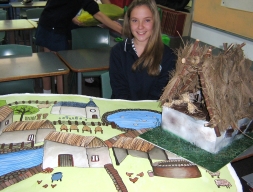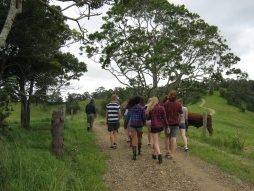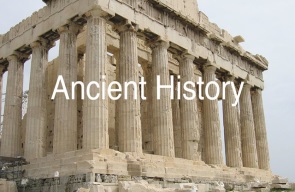The Humanities and Social Sciences are the study of human behaviour and interaction in social, cultural, environmental, economic and political contexts. The humanities and social sciences have a historical and contemporary focus, from personal to global contexts, and consider challenges for the future.
In the Australian Curriculum, the Humanities and Social Sciences learning area includes a study of history, geography, civics and citizenship and economics and business.

Through studying Humanities and Social Sciences, students will develop the ability to question, think critically, solve problems, communicate effectively, make decisions and adapt to change. Thinking about and responding to issues requires an understanding of the key historical, geographical, political, economic and societal factors involved, and how these different factors interrelate.
The Humanities and Social Science subjects in the Australian Curriculum provide a broad understanding of the world in which we live, and how people can participate as active and informed citizens with high-level skills needed for the 21st century.
History
Year 7 | The ancient world |
The Year 7 curriculum provides a study of history from the time of the earliest human communities to the end of the ancient period, approximately 60 000 BC (BCE) – c.650 AD (CE). It was a period defined by the development of cultural practices and organised societies. The study of the ancient world includes the discoveries (the remains of the past and what we know) and the mysteries (what we do not know) about this period of history, in a range of societies in places including Greece and China. The content provides opportunities to develop historical understanding through key concepts, including evidence, continuity and change, cause and effect, perspectives, empathy, significance and contestability. These concepts may be investigated within a particular historical context to facilitate an understanding of the past and to provide a focus for historical inquiries. |
|
Year 8 |
The ancient to the modern world |
The Year 8 curriculum provides a study of history from the end of the ancient period to the beginning of the modern period. This was when major civilisations around the world came into contact with each other. Social, economic, religious and political beliefs were often challenged and significantly changed. It was the period when the modern world began to take shape. The content provides opportunities to develop historical understanding through key concepts, including evidence, continuity and change, cause and effect, perspectives, empathy, significance and contestability. These concepts may be investigated within a particular historical context to facilitate an understanding of the past and to provide a focus for historical inquiries.
|
|
Year 9 |
The making of the modern world |
The Year 9 curriculum provides a study of the history of the making of the modern world from 1750 to 1918. It was a period of industrialisation and rapid change in the ways people lived, worked and thought. It was an era of nationalism and imperialism, and the colonisation of Australia was part of the expansion of European power. The period culminated in World War I, 1914–1918, the ‘war to end all wars’. The content provides opportunities to develop historical understanding through key concepts, including evidence, continuity and change, cause and effect, perspectives, empathy, significance and contestability. These concepts may be investigated within a particular historical context to facilitate an understanding of the past and to provide a focus for historical inquiries.
|
Year 10
|
The modern world and Australia |
The Year 10 curriculum provides a study of the history of the modern world and Australia from 1918 to the mid twentieth century, with an emphasis on Australia in its global context. The twentieth century became a critical period in Australia’s social, cultural, economic and political development. Students investigate wartime experiences through a study of World War II in depth. This includes a study of the causes, events, outcome and broader impact of the conflict as an episode in world history, and the nature of Australia’s involvement. The content provides opportunities to develop historical understanding through key concepts, including evidence, continuity and change, cause and effect, perspectives, empathy, significance and contestability. These concepts may be investigated within a particular historical context to facilitate an understanding of the past and to provide a focus for historical inquiries.
|
Geography
|
Year 7 | Water in the world
|

‘Water in the world’ focuses on water as an example of a renewable environmental resource. This unit examines the many uses of water, the ways it is perceived and valued, its different forms as a resource, the ways it connects places as it moves through the environment, its varying availability in time and across space, and its scarcity. ‘Water in the world’ develops students’ understanding of the concept of environment, including the ideas that the environment is the product of a variety of processes, that it supports and enriches human and other life, that people value the environment in different ways and that the environment has its specific hazards. Water is investigated using studies drawn from Australia, countries of the Asia region, and countries from West Asia and/or North Africa. |
| | Place and liveability |
‘Place and liveability’ focuses on the concept of place through an investigation of liveability. This unit examines factors that influence liveability and how it is perceived, the idea that places provide us with the services and facilities needed to support and enhance our lives, and that spaces are planned and managed by people. It develops students’ ability to evaluate the liveability of their own place and to investigate whether it can be improved through planning. The liveability of places is investigated using studies drawn from Australia and Europe. |
|
Year 8 |
Landforms and landscapes |
‘Landforms and landscapes’ focuses on investigating geomorphology through a study of landscapes and their landforms. This unit examines the processes that shape individual landforms, the values and meanings placed on landforms and landscapes by diverse cultures, hazards associated with landscapes, and management of landscapes. ‘Landforms and landscapes’ develops students’ understanding of the concept of environment and enables them to explore the significance of landscapes to people, including Aboriginal and Torres Strait Islander Peoples. These distinctive aspects of landforms and landscapes are investigated using studies drawn from Australia and throughout the world. |
|
Year 9
| Biomes and food security |
‘Biomes and food security’ focuses on investigating the role of the biotic environment and its role in food and fibre production. This unit examines the biomes of the world, their alteration and significance as a source of food and fibre, and the environmental challenges of and constraints on expanding food production in the future. These distinctive aspects of biomes, food production and food security are investigated using studies drawn from Australia and across the world. |
Preparatory subjects and senior schooling
Students can then choose to either do a Preparatory course in Ancient History, Modern History, Geography or Legal Studies in Year 10, Semester 2.
Year 10
| Senior geography |
Geography is the study of the human and natural characteristics of places and the interactions between them. Geography is a rich and complex discipline which includes two vital dimensions: the spatial dimension, which focuses on where things are and why they are there; the ecological dimension, which considers how humans interact with environments.
Geography prepares students for adult life by developing in them an informed perspective. This perspective is developed across a two-year course of study through a range of scales including local, regional, national, and global. Geographically informed citizens understand the many interdependent spheres in which they live. (Queensland Studies Authority, 2007) At Sunshine Beach State High School, students study the four major themes of People and Development, Managing the Natural Environment, Resources and the Environment and Social Environments. Students also participate in major exams at the end of Years 11 and 12.
|
| |
Modern History |
Through the study of Modern History, we can understand why our modern world is the way it is. We can understand the processes of change and continuity that have shaped today’s world, their causes, and the roles people have played in those processes. We can understand that there are relationships between our needs and interests and a range of historical issues, people and events. We develop these understandings through processes of critical inquiry, debate and reflection, and through empathetic engagement with the standpoint of others. There is a special focus on values. In historical studies, we encounter different values, investigate their origins and study their impact on human affairs. We begin to decide which values might guide us in building a more democratic, just and ecologically sustainable world for all people. (Queensland Studies Authority, 2004) At Sunshine Beach State High School, students immerse themselves in studies of conflict, diversity, power and hope. |
| |
Ancient history
|
Through the study of Ancient History, we can understand how the peoples and achievements of the distant past have influenced the modern world. Through a study of early peoples and cultures, we can understand the processes of change and continuity that have shaped today’s world, their causes, and the roles people have played in those processes. We develop these understandings through processes of critical inquiry, debate and reflection, and through empathetic engagement with the standpoint of others.
 There is a special focus on values in historical studies where we encounter different values, investigate their origins and study their impact on human affairs. We begin to decide which values might guide us in building a more democratic, just and ecologically sustainable world for all people. Studies of the distant past are equally as valuable as those of the not-so-remote past, although the fragmentary nature of the existing evidence provides unique challenges for the student of Ancient History. Most of the evidence has disappeared with time and the studies of Ancient History are influenced by the inevitable mystery surrounding these fragments of information. Determining the values and standpoints of ancient peoples from this limited and tantalizing evidence is part of the unique nature of historical studies into the ancient past. There is a special focus on values in historical studies where we encounter different values, investigate their origins and study their impact on human affairs. We begin to decide which values might guide us in building a more democratic, just and ecologically sustainable world for all people. Studies of the distant past are equally as valuable as those of the not-so-remote past, although the fragmentary nature of the existing evidence provides unique challenges for the student of Ancient History. Most of the evidence has disappeared with time and the studies of Ancient History are influenced by the inevitable mystery surrounding these fragments of information. Determining the values and standpoints of ancient peoples from this limited and tantalizing evidence is part of the unique nature of historical studies into the ancient past. (Queensland Studies Authority, 2004) At Sunshine Beach State High School, students explore the key themes of archaeology, everyday lives of ancient people, power, conflict and personalities in history.
|
| |
Senior legal studies |
A trip or fall in a shopping Centre, riding a bike without a helmet, a football player stood down by his team for unruly behaviour outside the game, 'borrowing' something without returning it - the law, it is everywhere and impacts people nearly every day of their lives. Individuals and groups in Australian society are faced with many significant legal and social issues. To deal with these issues, people need to understand their legal rights and responsibilities. They need to be able to access the Australian legal system and investigate how it affects their basic rights, obligations and responsibilities. Informed citizens are better able to constructively question and contribute to the improvement of laws and legal processes. Legal Studies enables students to have confidence in approaching and accessing the legal system and provides them with a better appreciation of the relationship between social and legal structures. Through inquiry, analysis, examination and problem solving, student can make decisions which may benefit themselves and the community now and in the future. The curriculum explores key areas of law that enables students to make connections to their world and greater society as well as challenge them on their own beliefs, values and structures. |